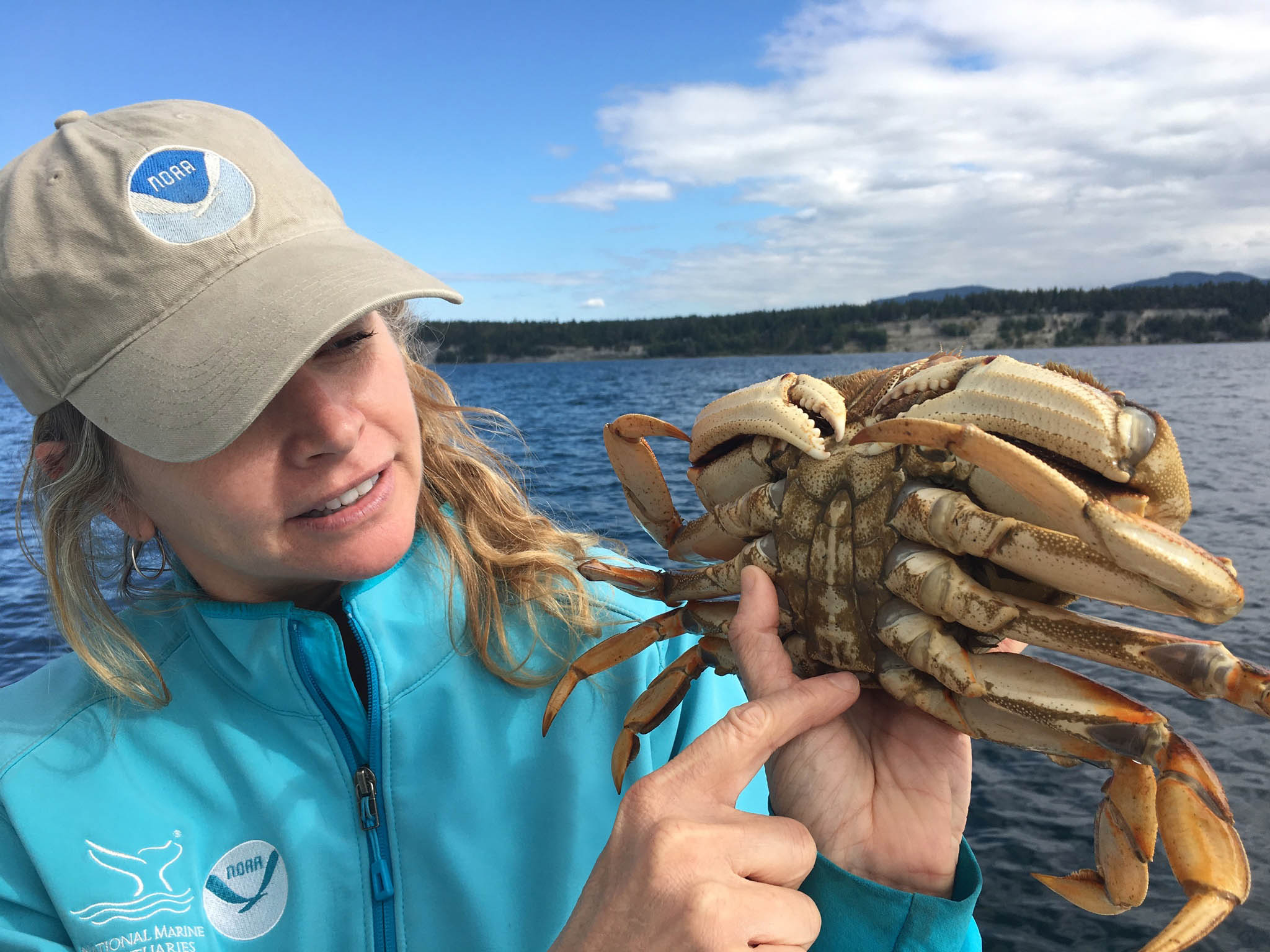NOAA has awarded $967,505 of an anticipated four-year, $4.2 million project to support research on multi-stressor impacts on marine ecosystems under climate change. The newly funded project, led by Oregon State University and NOAA’s Pacific Marine Environmental Laboratory, will occur off the coasts of northern California, Oregon, and Washington, including NOAA’s Olympic Coast National Marine Sanctuary, and will focus on climate impacts to Dungeness crab, an iconic and valuable fishery resource that is culturally and economically important to the region’s coastal communities.

Ocean acidification (OA), hypoxia, increasing temperatures, and harmful algal blooms (HABs) have emerged as leading environmental stressors in the northern California Current Ecosystem, impacting ecosystems, fisheries, and Indigenous and other coastal communities. Climate change is already making existing marine environmental stressors worse through changes to temperature, precipitation, seasonal cycles, and ocean chemistry. For the Dungeness crab fishery, the U.S. West Coast’s most valuable fishery, hypoxia has resulted in mass mortality of crabs in commercial pots, and HAB events have led to substantial fishing curtailment including season-scale closures. The continued intensification of this suite of multi-stressors poses substantial challenges for the management of ocean resources, ecosystems, and protected species. For marine protected areas and Tribal treaty fishing areas that have fixed boundaries, uncertainties in the expression and impacts of multi-stressors (OA, hypoxia, increasing temperatures, and HABs) threaten to undercut the ability of area-based tools to safeguard marine resources.
The goal of the proposed work is to help resource managers and tribes of the northern California Current Ecosystem prepare for the anticipated impacts of climate change, by increasing their understanding of how multiple stressors are likely to impact these ecosystems in the future. Also, this work will help determine the biological sensitivity of Dungeness crabs (Metacarcinus magister) and krill (Euphausia pacifica) to OA, hypoxia, HABs, and increasing temperatures.
Ultimately, this research will help inform a formal management strategy evaluation to assess the direct and indirect effects of multiple stressors on the performance of crab fishery management in the face of continued climate and carbonate chemistry changes. The project will incorporate traditional ecological knowledge using ethnographic interviews to offer insight and highlight tribal communities’ reliance, collection, reductions, and document changes in shellfish, ocean patterns, or conditions that tribal members have noted over multiple generations while relying daily on these environments for survival, health, and ceremonial practices.
The award is supported by Fiscal Year 2022 funding from NOAA’s National Centers for Coastal Ocean Science (NCCOS), Ocean Acidification Program (OAP), the Climate Program Office (CPO), and the U.S. Integrated Ocean Observing System (IOOS) Office, in partnership with the Office of National Marine Sanctuaries (ONMS).
For more information, visit the project website, or view the ONMS web story.
